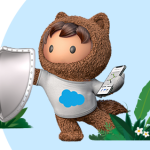96% of the India respondents in theSalesforce State of the Connected Customer reportopined that being treated as unique individuals plays great importance in building customer trust. A Mckinsey report says that 72% of the customers said that they expect businesses they buy from to recognise them as individuals and know their interests.
To meet these demands, marketing and advertising campaigns have now shifted their orientation from a ‘product-first’ approach to personalisation, where brands pay attention to the unique needs of their target audience. To develop an effective marketing strategy that engages customers on a deeper level, a CRM software is your best bet. Using the first-party data stored in your CRM, you can personalise advertising experiences and improve your digital marketing efforts over time.
What is CRM?
Besides being a systemto collect, store, organise and analyse customer data,CRM software now acts as a critical information hub for customer-centric processes that unite sales, service, commerce, IT, analytics, and marketing.With the help ofCRM, you can manage marketing campaigns, identify sales opportunities, and store customer and prospect contact information all in one convenient location. You can also make data about every customer interaction accessible to anyone at your company who might need it – to deliver those seamless and connected experiences.
Why use a CRM for advertising and digital marketing?
Your marketing teams can leverage granularcustomer informationfromCRMsystems to run powerful campaigns across allmarketing channels.In a general sense, aCRMsystem can help you:
- Get a better idea of the target: CRM uses customer data to create segmented groups based on past transactions, browsing patterns, purchasing behaviour, demographics, etc. Access to solid, granular data lets you surpass superficial audience groups, allowing you to define your target audience in more useful ways and produce marketing material that connects with your audience more strongly.
- Ensure cross-team alignment: CRM helps ensure alignment between different teams such as sales and marketing. This helps them function as a cohesive team, communicate crucial data and customer information and streamline all phases of the buyer’s experience.
- Automate routine tasks: CRMs automate routine administrative duties, speeding up other time-consuming yet crucial work. Automation can cover data entry, contact record updates, sending follow-up messages, creating and managing workflows, conversations with chatbots and much more.
Why use a CRM for advertising and digital marketing?
1. Plan your campaign better: CRM digital marketing uses a 360-degree view of the customer, including browsing habits, social media engagement, online purchase history, and other indicators. This data lets you understand the customer on a deeper level – including their behaviour, goals, pain points, and difficulties – and create targeted marketing campaigns that are tailored to your audience’s demands.
2. Create personalised content on different channels: Using the data provided by a CRM system, you can provide customised, specific content and offers across channels.
For example, you can use first-party data from CRMs in email marketing campaigns to –
- Change content in real-time
- Create customer-specific CTAs
- Set up segment-specific email sequence
While creating specified ads, CRM data can be used to inform activities related to –
- Promoting highly-targeted campaigns
- Featuring relevant ads for a target group
- Retargeting customers with ads based on their browsing activitie-
In social media marketing, CRM data helps in –
- Keeping a tab on platform-specific customer engagement activities
- Creating on-point, topical and unique content based on customer interest
3. Reply to customers promptly: A SaaS-basedCRM system lets your reps access client data in real-time from any location, without being bound to a desk or server network. While working in the office or on the job, employees can interact with clients and potential clients through mobile devices, enabling them to respond to inquiries on the go.
4. Measure your performance: With a CRM, you can gain real-time insight into the customer’s reaction to your brand’s content. You can also deploy analytics to assess the impact of the same and determine the changes to make in future campaigns. This instant evaluation of advertising effectiveness helps you improve and optimise campaigns
A robust advertising and digital marketing strategy is built on powerful customer data and analytics. Thishelps enhance personalisation, and positively impact the outcomes of campaigns.
With the help of a comprehensive CRM platform such as Salesforce Customer 360, you can unite your business around the customer. Salesforce Customer 360 is a unified platform that consolidates all customer data to create in-depth customer profiles and establish a single view of every customer. Customer 360 enables you to integrate data from all sources in one location, letting teams have shared views of clients to make better, quicker decisions and meet customer demands.
Ready to get better returns on your advertising and marketing strategies with Salesforce Customer 360?





















